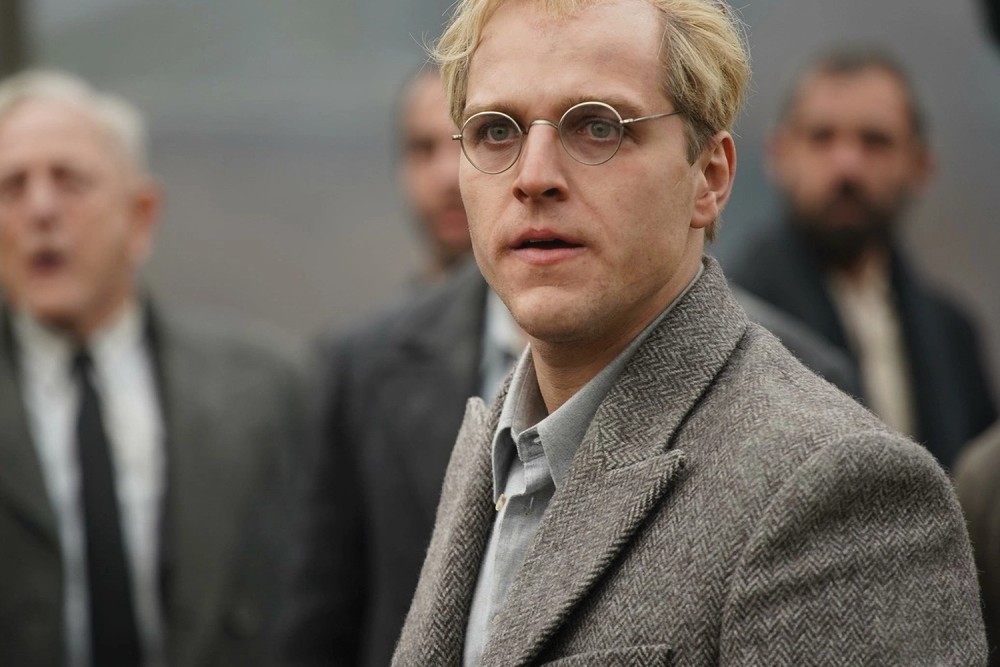The new Bonhoeffer movie isn’t just bad. It’s dangerous.
By egregiously misreading Dietrich Bonhoeffer’s moral crisis, it primes viewers for violence.

Jonas Dassler as Bonhoeffer in the eponymous new film (Angel Studios)
Buried in the foreword to Project 2025’s “Mandate for Leadership,” the not-quite-disavowed blueprint for the incoming Trump administration, is a strange reference to Dietrich Bonhoeffer. “Open-borders activism,” the document declares, is “a classic example of what the German theologian Dietrich Bonhoeffer called ‘cheap grace.’” Bonhoeffer is then invoked to denounce other excesses of the left, such as environmental extremism and insufficient hostility to China.
It is obscene that an antifascist martyr’s memory is being used to legitimize a movement promising mass deportations, but the American right has long admired Bonhoeffer. Much of this admiration stems less from his theology than from his decision to join a conspiracy to assassinate Adolf Hitler—a decision that ultimately led to his execution in the Flossenbürg concentration camp. This has given rise to the dubious concept of the “Bonhoeffer moment,” a term some use to describe a historical situation in which nonviolence is no longer tenable for a Christian and something like his act of attempted tyrannicide becomes necessary. Bonhoeffer moments are imagined as moments of extraordinary moral clarity, when good and evil are laid bare and previously unjustifiable acts become justified.
It is this image of Bonhoeffer wielding righteous violence against a tyrannical state that has ignited the right’s imagination. In 2011, former VeggieTales writer and current far-right radio host Eric Metaxas’s Bonhoeffer: Pastor, Martyr, Prophet, Spy became a runaway hit and positioned him as a popular interpreter of Bonhoeffer’s legacy (see “Hijacking Bonhoeffer,” October 19, 2010). In 2020, he proclaimed that the allegedly stolen election marked a Bonhoeffer moment and that lethal force was now permissible to keep Donald Trump in power: “What’s right is right,” he said. “We need to fight to the death, to the last blood.”





